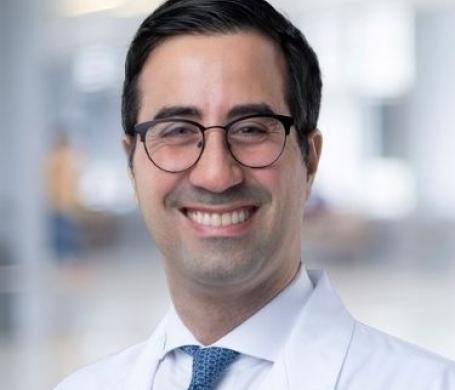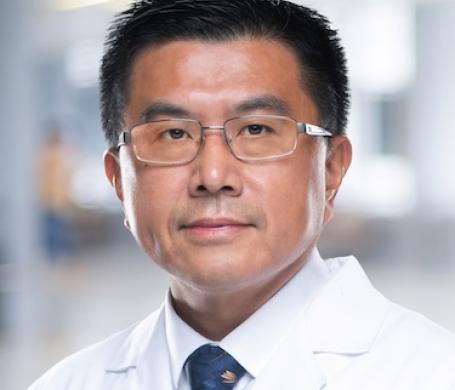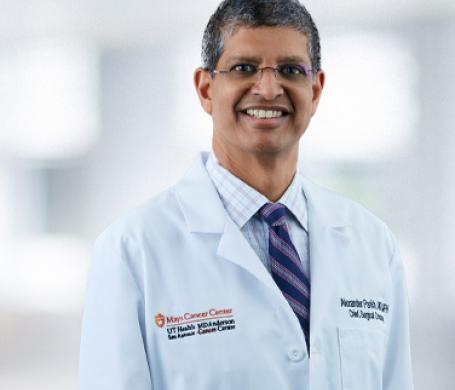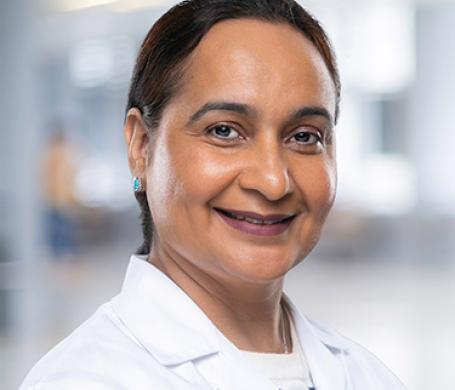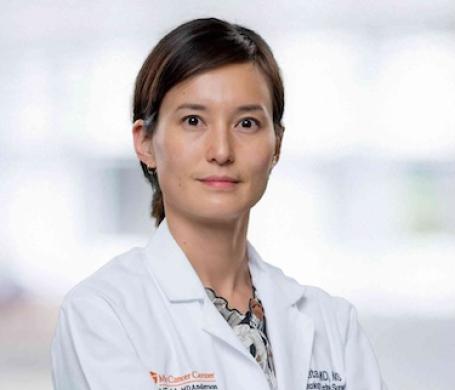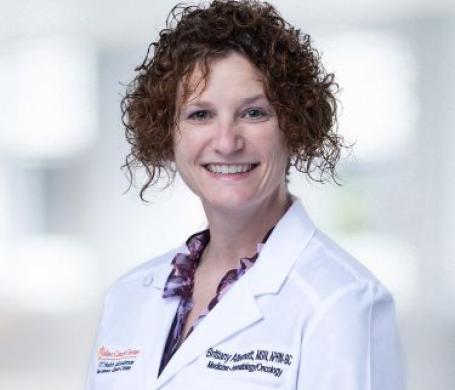

Gastrointestinal (GI) Cancer Program
- About Us
-
Cancer Care
-
Our Cancer Programs
- Adolescent and Young Adult Cancer Program
- Blood Cancer & Hematological Malignancy Program
- Blood Disorder (Hematology) Program
- Breast Cancer Program
- Cancer Genetics Program
- Cancer Risk Reduction and Education Clinic
- Cardio-Oncology Program
- Childhood Cancer Survivorship Program
- Endocrine Tumor Program
- Eye Cancer Program
- Gastrointestinal (GI) Cancer Program
- Genitourinary Cancer Program
- Gynecologic Oncology Program
- Head and Neck Cancer Program
- Liver Tumor and Cancer Program
- Lung Cancer Program
- Neuro-Oncology (Brain Tumor) Program
- Neurofibromatosis Program
- Pediatric Neuro-Oncology Program
- Pediatric Oncology Program
- Pediatric Sarcoma Program
- Pediatric Thrombosis Program
- Radiation Oncology
- Sarcoma Cancer Program
- Skin Cancer Program
- Supportive Cancer Care Program
-
Screening and Diagnosis
- Cervical Cancer Screening Guidelines
- Colorectal Cancer Screening
- Endometrial (Uterine) Cancer Screening Guidelines
- Hepatitis and Cancer
- HPV Vaccine and Screenings
- Liver Cancer Guidelines
- Lung Cancer Screening
- Mammogram
- Ovarian Cancer Screening Guidelines
- Prostate Cancer Screening Guidelines
- Skin Cancer Screenings
- Sun and Skin Safety
- Tobacco Use and Cancer
- Skin Cancer Screenings
- Cancer Genetics Program
- Cancer Survivorship Program
- Cancer Treatments
- Conditions
-
Our Cancer Programs
- Clinical Trials and Research
- Donate and Volunteer
- Education
- Patients and Families
- Appointments
- Doctors and Locations
-
Community Outreach and Engagement Program
- Message from COE Leadership
- South Texas Cancer Burden and COE Areas of Work
- Our COE Impact
- COE Community Advisory Board
- COE Publications
- Avanzando Caminos (Leading Pathways) Study
- Estudio Avanzando Caminos (Leading Pathways)
- San Antonio Firefighters Cancer Prevention Program
- STAR Immunotherapy Study
GI cancer affects the organs of your digestive system, such as the stomach, liver, colon and rectum. At Mays Cancer Center, home to UT Health San Antonio MD Anderson Cancer Center, our doctors are helping more patients reclaim wellness with a personalized approach that includes advanced therapies. And because we treat a high volume of patients, many with complex cancers, you can rely on us for precise care that brings healing.
Gastrointestinal cancers we treat
- Anal Cancer
- Bile Duct Cancer
- Colon Cancer
- Esophageal Cancer
- Hereditary Cancer Syndromes
- Liver Cancer
- Neuroendocrine Tumors
- Pancreatic Cancer
- Rectal Cancer
- Stomach Cancer
Why choose us for gastrointestinal cancer care?
Highlights of our program include:
- Expertise in rare cancers: Because many of our doctors have specialized training in GI cancer, we skillfully treat rare conditions, like peritoneal carcinomatosis. We diagnose and treat problems such as anal cancer, neuroendocrine cancer and bile duct cancer. As a result, you’ll find more care options. Find out more about the cancer types we treat.
- Advanced therapies: We offer cutting-edge treatments, including minimally invasive and robotic surgery, that protect nearby healthy tissue. These techniques remove cancer through small incisions and with a high degree of precision. We also deliver lifesaving procedures such as transplants for liver cancer.
- Regional innovation: The Advanced Interventional Gastroenterology (AIG) Clinic at Mays Cancer Center offers innovative advanced endoscopy for the diagnosis and treatment of many GI and liver cancers. Often replacing surgery, these minimally invasive methods mean less risk, shorter hospital stays and fewer — if any — incisions.
- Genetic testing and counseling: Some GI cancers, including certain types of colorectal and pancreatic cancer, are passed down in families. Genetic testing and counseling enable us to deliver care and services that are most appropriate for your needs. For example, we may recommend chemotherapy drugs that are more effective in genetic cancers or screening tests to check for signs of other cancers.
- Specialized care for older adults: As people age, they may respond differently to cancer treatments or have other health challenges that complicate their recovery. Our GI cancer experts understand and meet those needs. We adjust care plans to prevent setbacks and coordinate additional support when necessary. Find out more about geriatric oncology.
Leading GI cancer care in San Antonio
Our partnership with MD Anderson Cancer Center brings the highest levels of cancer expertise to San Antonio and 38 counties in South Texas. MD Anderson is one of the world’s most respected cancer programs.
Your doctors at Mays Cancer Center partner with MD Anderson experts to develop care plans for complex cancers. This level of coordination helps you get second opinions from renowned gastrointestinal cancer specialists close to home.
Get more information about our partnership with MD Anderson.
Our team approach to GI cancer
Our highly skilled GI cancer team coordinates your treatment, with therapies tailored to your needs. For some cancers, including pancreatic, liver and stomach, you may see several specialists in a single clinic visit.
Our gastrointestinal cancer team includes:
- Gastroenterologists and advanced gastroenterologists evaluate suspicious growths and treat complications without surgery, using instruments we pass through your throat or rectum.
- Interventional radiologists use imaging technology to help diagnose cancer and perform nonsurgical treatments, such as ablation and endoscopic mucosal resection. These therapies safely remove early-stage cancers that have not grown past the surface layer of tissue.
- Medical oncologists deliver cancer-fighting drugs (chemotherapy), targeted therapy or immunotherapy. We stay current on advancements in the field and offer years of experience. That means you can be confident you’ll receive the medications that are most appropriate for your diagnosis.
- Dietitians can help you get proper nutrition, especially if you are having difficulty eating. We may suggest special foods or liquid nutrition to support your well-being and keep your care moving forward.
- Pathologists, doctors who specialize in diagnosing medical problems, confirm or rule out a GI cancer diagnosis. These specialists also determine the cancer type by examining tissue under a microscope.
- Radiation oncologists use the latest techniques to destroy cancer cells with radiation. You have access to technologies that deliver focused treatments and protect healthy tissue, so you experience fewer side effects.
- Surgeons remove cancer using the latest available techniques. Our team includes surgeons who specialize in procedures to treat liver, pancreatic and colon cancer.
Research and clinical trials for gastrointestinal cancer
Our research efforts give you access through clinical trials to new cancer drugs and innovative care methods, such as targeted therapy. Targeted therapy attacks only cancer cells while preserving healthy ones.
We are the only National Cancer Institute (NCI)-designated cancer center in Central and South Texas. This recognition means you can trust our commitment to a safe clinical trial experience.
Our team includes GI cancer clinical trial coordinators. These experts explain the clinical trials you are eligible for and how they can help you get better.
Learn more about cancer research and clinical trials.
Care location
Zeller Building
- Gastrointestinal Oncology | 6th Floor
- Colon and Rectal Surgery | 6th Floor
- Surgical Oncology | 6th Floor
- Advanced Interventional Gastroenterology | 6th Floor
Get Cancer Care
Take the first step by visiting our cancer experts for testing, a second opinion or to learn about treatment options.
Meet our team



 Close
Close


